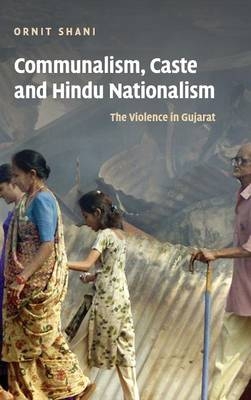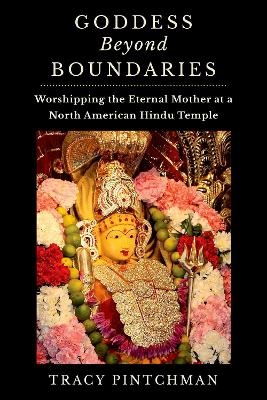
Communalism, Caste and Hindu Nationalism
The Violence in Gujarat
Seiten
2007
Cambridge University Press (Verlag)
978-0-521-86513-5 (ISBN)
Cambridge University Press (Verlag)
978-0-521-86513-5 (ISBN)
Ornit Shani examines the rise of Hindu nationalism, asking why distinct groups of Hindus, deeply divided by caste, mobilised on the basis of unitary Hindu nationalism, and why the Hindu nationalist rhetoric about the threat of the Muslim minority was so persuasive to the Hindu majority.
Belligerent Hindu nationalism, accompanied by recurring communal violence between Hindus and Muslims, has become a compelling force in Indian politics over the last two decades. Ornit Shani's book examines the rise of Hindu nationalism, asking why distinct groups of Hindus, deeply divided by caste, mobilised on the basis of unitary Hindu nationalism, and why the Hindu nationalist rhetoric about the threat of the impoverished Muslim minority was so persuasive to the Hindu majority. Using evidence from communal violence in Gujarat, Shani argues that the growth of communalism was not simply a result of Hindu-Muslim antagonisms, but was driven by intensifying tensions among Hindus, nurtured by changes in the relations between castes and associated state policies. These, in turn, were frequently displaced onto Muslims, thus enabling caste conflicts to develop and deepen communal rivalries. The book offers a challenge to previous scholarship on the rise of communalism, which will be welcomed by students and professionals.
Belligerent Hindu nationalism, accompanied by recurring communal violence between Hindus and Muslims, has become a compelling force in Indian politics over the last two decades. Ornit Shani's book examines the rise of Hindu nationalism, asking why distinct groups of Hindus, deeply divided by caste, mobilised on the basis of unitary Hindu nationalism, and why the Hindu nationalist rhetoric about the threat of the impoverished Muslim minority was so persuasive to the Hindu majority. Using evidence from communal violence in Gujarat, Shani argues that the growth of communalism was not simply a result of Hindu-Muslim antagonisms, but was driven by intensifying tensions among Hindus, nurtured by changes in the relations between castes and associated state policies. These, in turn, were frequently displaced onto Muslims, thus enabling caste conflicts to develop and deepen communal rivalries. The book offers a challenge to previous scholarship on the rise of communalism, which will be welcomed by students and professionals.
Ornit Shani is Senior Lecturer at the Department of Asian Studies, University of Haifa, Israel.
Introduction; Part I. The Background: 1. Setting the scene; 2. The politics and discourse of reservations and caste; Part II. The 1985 Ahmedabad Riots: The historical conjunction between caste and communalism; Outlining the riots - the plot; 3. The official account; 4. The 'living-text', or, the riots within the riot; Part III. The Making of Ethnohinduism: 5. The making of ethnohinduism: from the politics of redistribution to the politics of recognition; 6. The role of violence in ethnic politics; Bibliography.
| Erscheint lt. Verlag | 12.7.2007 |
|---|---|
| Zusatzinfo | 1 Maps |
| Verlagsort | Cambridge |
| Sprache | englisch |
| Maße | 158 x 235 mm |
| Gewicht | 488 g |
| Themenwelt | Geisteswissenschaften ► Religion / Theologie ► Hinduismus |
| Sozialwissenschaften ► Politik / Verwaltung ► Politische Systeme | |
| Sozialwissenschaften ► Politik / Verwaltung ► Politische Theorie | |
| Sozialwissenschaften ► Soziologie ► Spezielle Soziologien | |
| ISBN-10 | 0-521-86513-1 / 0521865131 |
| ISBN-13 | 978-0-521-86513-5 / 9780521865135 |
| Zustand | Neuware |
| Haben Sie eine Frage zum Produkt? |
Mehr entdecken
aus dem Bereich
aus dem Bereich
Worshipping the Eternal Mother at a North American Hindu Temple
Buch | Hardcover (2024)
Oxford University Press Inc (Verlag)
CHF 136,00


